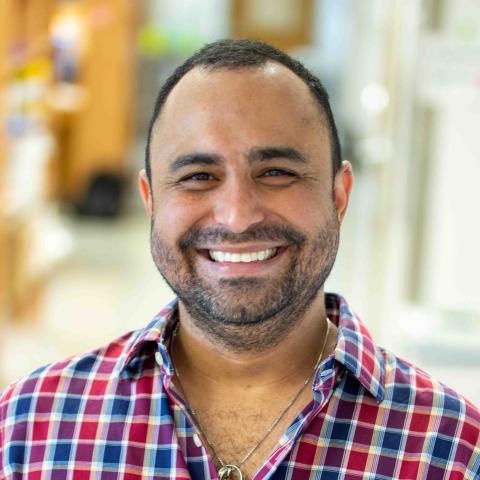Lab Member Biographies

Gervaise Henry, M.S.
Computational Biologist
Gervaise obtained his master's degree at American University in 2015. He joined Dr. Strand's lab in 2015. His previous experience involved the utilization of a diverse set of molecular techniques to investigate cancer biology. He also has a strong background in early-stage drug discovery, including the use of lab robotics. After a very successful fellowship with UT Southwestern Bioinformatics Department's Bioinformatics Core Facility (BICF), he transitioned to a more computational role in the lab. He is responsible for the analysis of sequencing, in particular single-cell RNA-sequencing analysis. He also builds pipelines for automated analysis, and tools for easy data exploration.

Diya Binoy Joseph, Ph.D.
Postdoctoral Fellow
Diya joined the Strand lab in January 2019 as a postdoctoral researcher. Prior to this, she received her Bachelor's degree in Biotechnology from the National Institute of Technology, Calicut in India in 2013 and a Ph.D in Cellular and Molecular Biology in December 2018 from the University of Wisconsin-Madison. During her doctoral studies in Dr. Chad Vezina's lab, Diya studied the development of the lower urinary tract with special emphasis on the role of DNA methylating enzymes during prostate development. During her doctoral studies, Diya was part of a collaborative project with Dr. Strand to produce the first cellular anatomy of the normal human prostate at single cell resolution. This collaboration led to her current position as a postdoctoral researcher in the Strand lab where she studies Benign Prostatic Hyperplasia (BPH) and the role of novel club and hillock urethral cell types in BPH growth. BPH recapitulates several aspects of prostate developmental growth and she has been able to utilize her experience in studying the developing prostate to generate and test novel hypotheses on BPH pathogenesis. In addition, Diya has extensive experience working with genetic mouse models, molecular biology techniques, imaging and flow cytometry